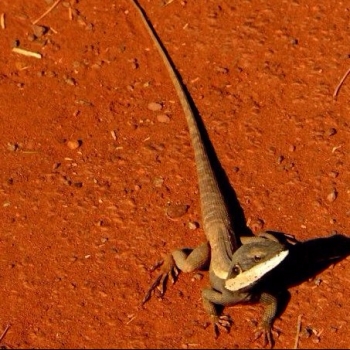I got him when he was a tiny black kitten with faint watermarks in his fur, a white patch on his chest, and white paws. I was living in a bach at Whangaparaoa with my friend David. I don’t recall where Tiddles came from. As he grew, he turned into a Tabby. I didn’t really notice the change it was so gradual. Until one day I realised he wasn’t black any more. He was Tiddles the Tabby.
He was the latest in a long succession of Tiddleses stretching back to when I was eight, living in Bunnythorpe. I had tried to name that first one Ned Kelly, but my grandmother gave him the appellation Tiddles. There was nothing I could do about it. It was the name he answered to. The name stuck for all my cats in the following years; cat after cat.
None of my previous cats were as memorable as this Tiddles was. They were a succession of furry companions indistinguishable from each other except by colour. Tiddles was different.
From the start, he slept with me in my bed. As a tiny kitten he would curl up in the small of my back, or under my chin. Anywhere awkward. He never once, to my recollection, needed any toilet training.
I had a succession of jobs after I left university. My speech impediment prevented me being accepted into the careers I thought I wanted. I lacked confidence, direction and motivation for a time. In 1972 I switched from hospital orderly to dairy farmhand, and moved, with Tiddles, to a farm in Matamata.
Young McDonald, my employer, 1971 Young Farmer of the Year, and Total Dick, allowed me to bring my cat with me, but would not let him inside the house. Cats belonged outside, catching mice. I just opened my bedroom window for Tiddles. He joined me when I went to bed, which was early, and left in the morning at four, when I got up for breakfast before milking.
I loved the farming life, and worked at it hard and diligently, but did not get on well with my employer, who had no social skills at all. But that’s another story.
I returned home to my parents’ after I failed as a farmer, and lived in a room in the back of the garage for a time, with a large saltwater aquarium, and with Tiddles.
Tiddles was a hunter, and always shared his kills with me. Always the back half, neatly beheaded and gutted. A mouse, a rat. Whatever. Left neatly at the foot of my bed ready to eat. Then, for a few weeks one year, the haunches of a guinea pig would appear periodically. I have no idea where he obtained them. I didn’t ask. One day, a very different looking haunch was proudly left for my delectation. I puzzled over it for a time until I realised it was the back end of a chihuahua. My cat had killed, and half eaten, a dog.
I guiltily buried my share in the garden, with the guinea pigs and rats. I thought no more about it until about a week later a woman and her young daughter came knocking door to door with a picture of a chihuahua pup, asking if anyone had seen it. They had only just got it to replace some guinea pigs that had escaped, and now it had run away too. It had cost them three hundred dollars. A lot of money back then.
I was not aware of my legal liability as the owner of the canicidal cat, so of course I did not enlighten them as to the end of their lost pup.
Shortly after that I moved into a rented house down by the railway lines. At the rear were acres of vineyard, and next door was a poultry processing plant. Chickens that escaped often came to my place. Most never left. Now I could share in his kills.
Tiddles used to ride with me in my car. He happily sat on the back of the seat with his paws on my shoulder. I could take him for a walk and he’d follow like a dog. He would stalk me, and ambush me. He was always head-bumpingly friendly.
Until the first time he found me sharing my bed with someone else. Then he was out of sorts for a week. But he settled into married life, too.
When I brought home Mach the Dog Tiddles was out of sorts even longer, but the two of them finally settled into mutual acceptance. Tiddles would stalk and ambush Mach, who would run away. He could have killed Tiddles easily. I saw him snap the neck of a possum once. The possum is the most viciously frightening creature in New Zealand apart from the wild boar. Any dog that can deal with one of those could easily despatch a cat. Mach knew his place.
Many years and three houses later they were still chasing each other around. One day I was dropped off at home in Ranui after work by a friend because my car was in for servicing. The pets had not recognised the sound of the car, so were not aware I had arrived home. I looked over the front gate to see them both curled up together on the lawn, grooming each other with their tongues. As friendly as can be. An unusual and touching sight. The moment they saw me, Tiddles jumped away from Mach and started his harassment routine again. They really were playing.
They died about a year apart, Tiddles at about eighteen years of age and Mach at eleven. I’ve never had any other pets like them.





































